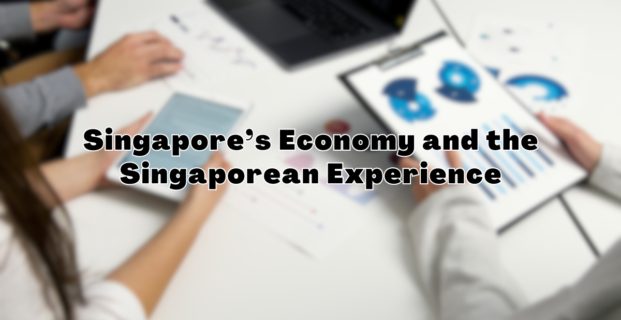Singapore is often celebrated as an economic powerhouse, admired for its strategic governance, innovation, and robust infrastructure. Despite these strengths, Singapore’s economy and society face challenges that merit introspection. For students studying JC economics, understanding Singapore’s achievements and shortcomings provides a well-rounded perspective on the interplay between economics and societal well-being. Economics tuition in Singapore further equips students to critically analyze these facets, preparing them for academic success and thoughtful engagement with real-world issues.
Singapore’s Economic Strengths: A Global Success Story
Singapore’s economic model is defined by its efficiency and adaptability. Key pillars of its success include:
- Strategic Location and Global Trade
Positioned at a global crossroads, Singapore’s economy thrives on trade, with exports contributing significantly to GDP. Its open trade policies and participation in agreements like the RCEP make it a hub for international commerce. - Proactive Governance
The government’s long-term planning ensures resilience in the face of global uncertainties. Policies promoting fiscal prudence, workforce development, and technological adoption have positioned Singapore as a leader in economic stability. - Innovation and Technology
Investments in research and development and programs like Smart Nation drive Singapore’s transition into a knowledge-based economy. The emphasis on digitalization and sustainability reflects forward-thinking strategies. - World-Class Infrastructure
Singapore’s efficient transport system, connectivity, and urban planning support its role as a global business hub.
What Does Singapore Lack?
While Singapore’s economic success is commendable, there are areas where gaps remain, impacting the broader Singaporean experience:
- Income Inequality
Despite a high GDP per capita, income disparity remains a pressing issue. The gap between the highest and lowest earners can create societal divides, a topic often explored in JC economics through concepts like equity and redistribution. - Housing Affordability
While public housing is accessible to most Singaporeans, the rising cost of private properties has made homeownership challenging for some. Economics students often analyze the role of supply and demand and government intervention in this context. - Aging Population
Singapore’s aging demographic poses challenges for healthcare, labor productivity, and social spending. This issue underscores the need for sustainable policies, a key focus in JC economics discussions on economic sustainability. - Environmental Challenges
As a densely populated urban city, Singapore faces environmental concerns such as waste management and carbon emissions. Balancing growth with sustainability is an ongoing challenge. - Work-Life Balance
The pressure to excel in academics and careers often affects work-life balance and mental well-being. For students, this pressure is evident in the rigorous JC economics curriculum, where economics tuition in Singapore helps alleviate academic stress.
How Economics Tuition in Singapore Prepares JC Students
Economics tuition in Singapore plays a critical role in helping students navigate the complexities of both the subject and Singapore’s economic landscape.
- Application of Real-World Context
Tutors integrate current issues like income inequality, housing policies, and aging demographics into lessons, providing practical insights into theoretical concepts. - Critical Thinking and Analysis
Tuition equips students with the tools to evaluate policies critically. For example, students might explore whether Singapore’s CPF system adequately addresses retirement needs or the effectiveness of green initiatives. - Exam Strategies
JC economics exams require structured answers and clear articulation of arguments. Tuition focuses on developing these skills through mock papers, model essays, and time management techniques. - Broader Engagement
Beyond exams, tuition encourages students to think deeply about the economy’s impact on society, fostering well-rounded individuals who are ready to contribute meaningfully to discussions about Singapore’s future.
The Singaporean Experience: A Holistic Perspective
Singapore’s economy is a blend of impressive achievements and areas for growth. While it excels in global competitiveness and governance, addressing societal gaps like income inequality, housing challenges, and environmental sustainability is essential for a balanced future. For JC economics students, these issues are not just academic topics but vital lessons in understanding the nuances of economic systems and their impact on society.
Conclusion
Singapore’s economic success is undeniable, but the Singaporean experience highlights areas that demand attention for holistic progress. By studying these dynamics through JC economicsand seeking guidance from economics tuition in Singapore, students gain valuable insights into the strengths and challenges of this unique nation. As Singapore continues to evolve, fostering a deeper understanding of its economy and society will be key to building a more inclusive and sustainable future.

